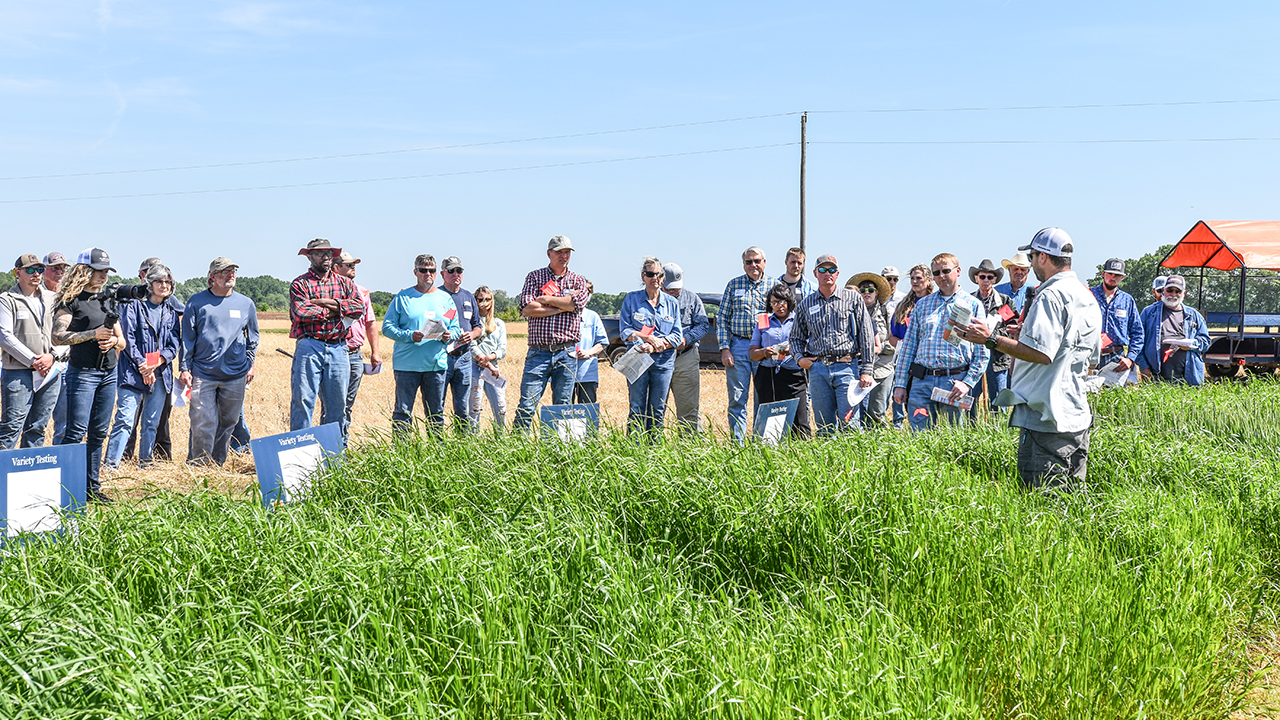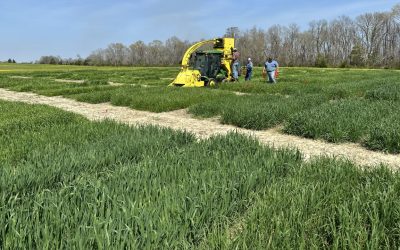Auburn University
Variety Testing Program

Variety selection is the most important decision a farmer can make. If farmers want to be successful, they must ensure that they plant varieties that are well adapted. If a farmer selects the wrong variety, the results can be catastrophic. Typically, farmers do not have the resources to conduct variety trials in addition to their normal growing season activities.
Variety evaluation is also critical to plant breeders, both from universities and industry. Prior to releasing a new variety, these breeders typically evaluate their lines in independent variety trials. This ensures that they have unbiased data from multiple years and locations to support the release of their new variety.
The mission of the Auburn University Variety Testing Program is to provide research-based, unbiased results on the performance of various crop hybrids, cultivars, and varieties to the agricultural community in Alabama. We are intent on conducting these trials in a manner that will result in maximum biological yield through methods common to the top-producing farms in Alabama.
We are committed to providing this information in a timely manner for its use during the decision-making process. The success of the program rests on our ability to help Alabama producers provide a safe, dependable source of food and fiber for all families as well as an economic sustainability for theirs.

Henry Jordan
Variety Testing Manager, Research Associate IV
Subscribe to AU Variety Testing Updates
Annually, the Auburn University Variety Testing Program conducts trials on corn, cotton, soybeans, peanuts, grain sorghum, wheat, barley, oats, triticale, small grain forages, and ryegrass.
Trials are conducted on Auburn University owned and operated agricultural research stations across the major geographical regions of the state. The research conducted at each of these locations can provide stakeholders with data that can be more representative of their growing conditions.
VARIETY CATEGORIES
Winter Forages and Maturity, 2023-2024
Which variety(s) will transition from vegetative reproductive growth first? How long will my winter annual compete with my warm-season perennial? These are important factors to consider when overseeding a warm-season perennial pasture such as bermudagrass or...
Performance of Small Grain Forages in Alabama, 2023-2024
October 10 - Forage quality results are available for the BBREC forages - wheat, oat, rye, and triticale. September 18 - Forage quality results are available for the SRMEC oats. September 11 - Forage quality results are available from the CREC. July 19 – Forage...
Multi-State Data – New Feature Released
In 2021, the Auburn University Official Variety Testing (OVT) Program contracted with Medius Ag, a third-party agricultural data management company, to store, manage, and maintain Auburn OVT data in an online database/tool available to all stakeholders. The goal was...
Performance of Cotton Varieties in Alabama, 2023
January 29 2023 OVT cotton data updates are concluded. Quality results are available for the WREC Short Season Non-Irrigated OVT. Quality results for the WREC Full Season Non-Irrigated are excluded due to an incomplete dataset. January 3 Quality results (micronaire,...
Performance of Peanut Varieties in Alabama, 2023
February 12, 2024 2023 Peanut OVT results are complete. Seed per pound at harvest is available for all five OVTs. January 8, 2024 - Quality results are available for the OVTs conducted at the GCREC, BARU, & EVSRC. November 18 - Quality results are available for...
2023 On-Farm Cotton
January 3 2023 On-farm cotton results, compliments of Tyler Sandlin - On-Farm Cotton Coordinator, are now available. The on-farm cotton trials are split into two categories, North & South. Summary tables are provided for each. However, they have been filtered...

